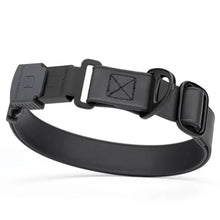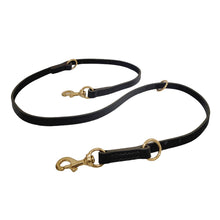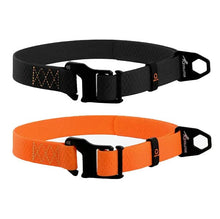Should You Give Your Dog Probiotics?

Probiotics are a popular supplement and are also often found in many brands of dog food. The word “probiotic” is derived from the Latin word “for” (pro) and Greek “life” (bio). These gut-friendly microbes help fight off harmful microbes.
So, should you be giving this life-giving supplement to your dog? First, let’s look at what probiotics are.
What are probiotics?
Probiotics are live bacteria and yeast that are helpful for the digestive system of dogs. Unlike the harmful bacteria that can make dogs sick, probiotics are good for dogs because they help keep the gut healthy.

They work by helping to prevent and treat dysbiosis, which is an imbalance, or a deficit of beneficial microbes found in a dog’s natural gut microbiome. When dogs consume probiotics, it helps strengthen their army of good bacteria.
This increase in good gut bacteria helps to keep the digestive system functioning optimally and prevent illness since 70% of your dog’s immune system is in their gut. They also help dogs absorb the nutrients in their food, which helps to keep them healthy.
When dogs have a weakened immune system or are sick, it weakens their gut microbiome, which is why veterinarians often suggest probiotics to help protect and rebuild it. For example, they often prescribe probiotics along with antibiotics or steroids.
At different times in a dog’s life, microbes can be damaged or destroyed, which may contribute to stomach upset, diarrhea, and a decline in health. During these times, vets will often prescribe probiotics to balance the gut and strengthen the immune system.

What type of probiotics can help my dog?
There are many strains of probiotics beneficial to dogs. According to Cornell College of Veterinary Medicine, they include:
• Bacillus coagulans
• Bifidobacterium animalis (strain AHC7) helps with acute diarrhea
• Bifidobacterium bifidum
• Bifidobacterium longum (BL999) helps with anxiety
• Enterococcus faecium (strain SF68)
• Lactobacillus acidophilus improves stool quality and frequency
• Lactobacillus casei
• Lactobacillus plantarum
• Lactobacillus rhamnosus (strain LGG) may be effective for diarrhea since it is beneficial for humans with diarrhea

What health problems may probiotics improve?
Probiotics are most often prescribed for maintaining a “desirable intestinal microbial balance,” according to the Merck Veterinary Manual. Some health conditions and their symptoms that may benefit from probiotics include:
• Excess gas
• Diarrhea
• Nausea
• Irritable bowel syndrome
• Parasites
• Illness
• Injury
• During times of stress
• Allergies
• Urinary tract infections
• Improve skin and coat
• Bacterial infection
• Changes in diet
• Reduce allergies
• Improve digestive health
• Strengthen the immune system
• Support natural aging
• Bad breath, not related to dental disease
• During the use of certain medications, such as antibiotics and steroids

According to Richard Riney, DVM, probiotics may even help improve the mental health of some dogs:
“Mental health is one of the most exciting revelations about probiotics. Your dog’s gastrointestinal tract and brain are in constant contact, and proper microorganisms in the intestines can help with mental and emotional regulation.”
“The bacterium called bifidobacterium longum, commonly known as BL999, is at the forefront of this discovery. Dr. Ragen T.S. McGowan, a pet behavior researcher for Nestlé Purina, reported that dogs who took BL999 were less likely to bark, jump, spin , or pace in situations that normally caused them distress. They were also more likely to explore a new environment.”
How do I feed my dog probiotics?
Some dog foods that contain probiotics will provide a guaranteed analysis per serving. You can talk to your vet to determine if your dog is getting enough in their food.

You can also supplement probiotics as needed, such as while your dog is taking medication or experiencing lots of stress, for example during a move or while being boarded. In times like this, it’s best to start feeding the prebiotics as soon as possible or a week in advance of a stressful situation.
You can also supplement probiotics daily as part of their preventative or holistic health care.
Can all dogs take probiotics?
No, not all dogs should take probiotics. Some dogs may be sensitive to probiotics, and they should be discontinued if they cause digestive upset.
Probiotics are considered safe but immunocompromised dogs should never be given probiotics except under the guidance of a veterinarian since they do carry a bacterial load, albeit good bacteria.

If your dog is sick, injured, taking medication, or having surgery, it’s always a good idea to let your vet know what probiotics they are taking.
What kind of probiotics should I buy?
There are numerous brands of probiotics available at pet stores and online. They come in powders, capsules, individual packets, and chews. Look for a product that contains “live” probiotics. The package should identify the strain. Since probiotics are living things, care should be taken that they are used before the expiration date and stored according to product directions, and not left exposed to air and heat. A great brand is NATURAL DOG COMPANY - Super-Flora Probiotic Supplement.
We hope you found this information helpful. As always, please feel free to share it with your friends.
You might also like: German Shepherd Health Check: Monthly Wellness Routine For A Happy and Healthy Dog






















